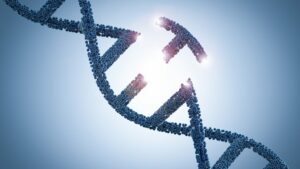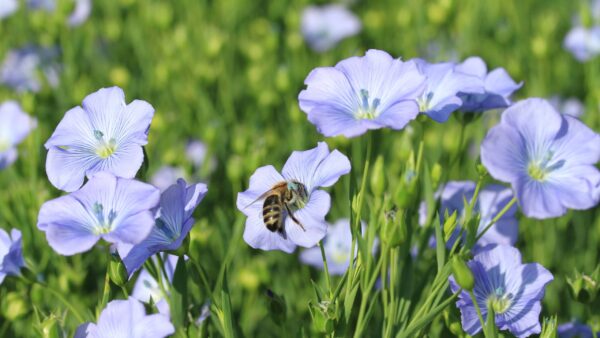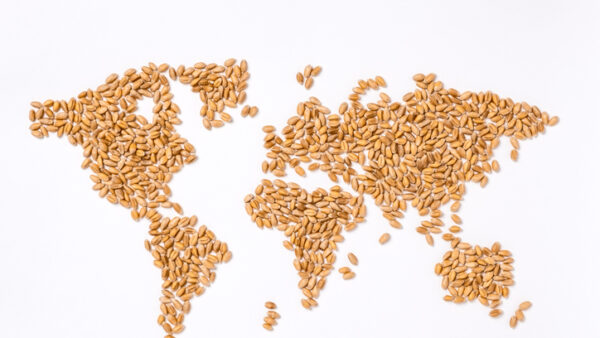Besides science, we all know that agriculture involves culture. We ‘cultivate’ (i.e. agri-culture contributes culture – human values) to the natural environment. Farming is not nature; we learn from nature and use that knowledge to produce the goods that we need. Farmers plant 160,000 bean plants on a hectare. In nature, this would never happen. In agriculture, cereals keep their seeds on the plants waiting for the farmer to pass and harvest them for our bread & beer. Nature would make sure that seeds are shed and spread widely.
It appears that people do not have this concept in mind when they speak about certain breeding methods as ‘unnatural’. This is commonly followed by the argument that because of that lack of naturalness, such breeding methods or their products should be avoided or at best be strictly and extensively regulated. In debates I often follow the same logic as with agriculture: breeders also learn from nature and use that knowledge to produce better varieties for farmers, processors and consumers. The commonly encountered popular logic can cause pretty basic problems when policy issues are discussed that are relevant for our sector, such as gene editing. Rational discussions can focus on risks and hazards, notably in relation to human (and animal) health and the environment. It becomes more complex when socio-economic arguments enter the debate, such as the role of technology in relation to mergers and concentration trends in the seed industry. But it becomes really problematic when ethics, and particular words like ‘natural’, ‘intrinsic value’ and ‘integrity of the genome’ are thrown into the debate. A common result is that we lose track of the line of thinking and either start to speak louder and louder in our (natural) scientific right or fall silent because we are totally lost. Neither reaction is likely to be productive.
I recently came across a line of thought that helped me understand where such remarks may come from. In our relationship with nature — yes, nature remains important — every person has particular personal starting points. We can consider ourselves ruler, steward, partner, or participant. The former considers mankind the owner of nature with which we can do what we want. The “ruler” can use nature for its needs, irrespective of the impact on nature. Mining and deforestation have brought wealth but also destroyed cultures, such as those of remote pacific islands when the natural resource base was depleted. The “steward” has no problem using natural resources, but at the same time feels a responsibility towards this use, which is commonly translated in terms of avoiding exhausting the natural environment so that also the next generations can benefit. This is a more common approach in our age of sustainable development. The “partner”, however, goes beyond this practical approach in that exhaustion is avoided for the sake of nature itself — particular values are assigned to nature and natural phenomena. Finally, the “participant” cannot really use nature as he is just an intrinsic part of it. These are very personal perceptions that shape our thinking about many things, including agriculture and breeding. They cannot easily be rationalized.
I think that most seedsmen consider themselves steward rather than ruler. We can study nature and make the laws of nature work for us as long as we don’t create too serious negative side effects. At the same time, we do realize that biology (breeding) and ecology (farming) are very complex and that we haven’t grasped all their secrets yet. The world view of the organic sector on the other hand, or at least a major part of it, is rather that humankind is ‘the partner’ – and sometimes even close to ‘a participant’ – which means that for them the concepts of intrinsic value and integrity are real. This makes it very difficult for them to accept certain human interventions. I was explained recently that ‘invading’ the cell or the genome challenges the intrinsic value of the organism. That is the main reason why for such individuals, gene editing is not acceptable, and not even conventional mutation breeding. Even when the products of such interventions result in precise copies of natural mutations, they consider it wrong that people willfully enter the cell to manipulate it. The actor counts, not the outcome.
How to discuss gene editing policies with such individuals? Rational arguments about safety and legal arguments about interpretation of words are irrelevant in such discussions. Questioning the basic assumptions is not accepted. Even if we don’t share such views, we may have to respect them. We can stress though that such ethical principles are highly personal and that we could expect respect for the steward-views as well. The result should then be that when the (IFOAM-type) organic sector is welcome to avoid (products of) such techniques because of such worldviews, they should in return not vote against the use by the conventional sector that may hold different views. It also means that we should be willing to inform breeders for the organic sector (and farmers) about our varieties when they ask about breeding methods used so that they may avoid using them in further breeding. Companies do that already with regard to CMS in the absence of regulation.













